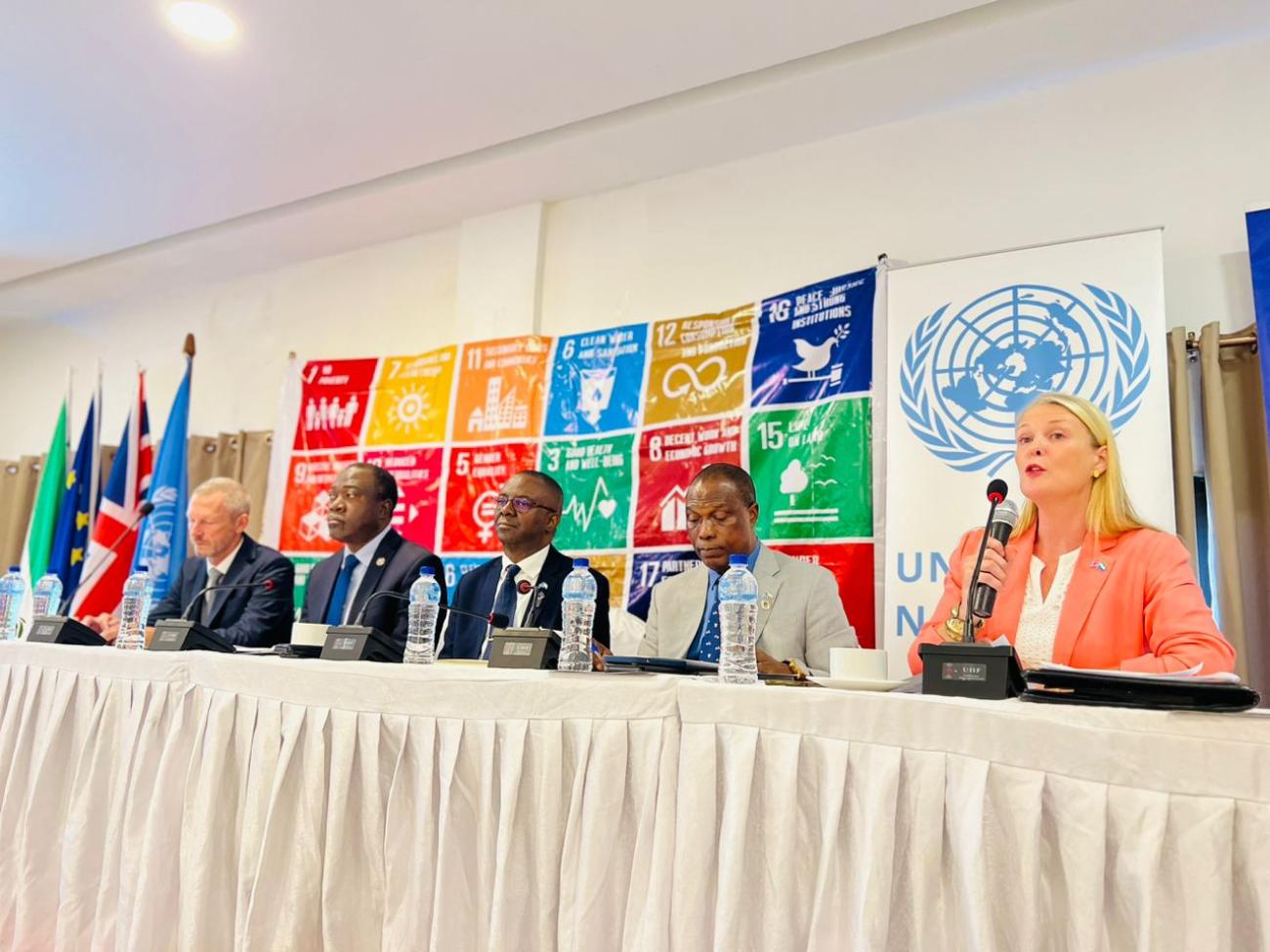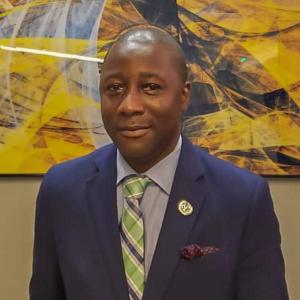Ahead of COP27 to be held in Egypt in November 2022, UN Resident Coordinator (RC) Mr Babatunde Ahonsi, on behalf of the UN System in Sierra Leone, today called for a 'whole-of-society approach' if progress is to be made on the Sustainable Development Goals (SDGs), particularly SDG13 - Climate Action.
In his remarks at the event UN Sierra Leone co-hosted with the British High Commission and the European Union, the RC said that in addition to the government, civil society, the private sector, community leaders, educational institutions, and international partners all have a role to play.
Mr Ahonsi said, "climate change affects every country on every continent and does not respect national borders”, indicating that international cooperation, whether in the form of scientific research, new technology, or climate finance, is very important.
According to the RC, consistent with the 'whole-of-society' approach is the notion that the Government's climate action must extend beyond the Ministry of Environment to include a range of Ministries, Departments, and Agencies.
He emphasised the impact of climate on other sectors — Agriculture and Food Security, Disaster Preparedness and Response, and Public Health. The RC further noted that "it is vital that climate is integrated into all sector strategies and national development plans."
The RC referenced the UN Secretary-General Antonio Guterres, whom he said at the closing of COP26 in Glasgow, called on the global community to make good on the $100 billion-dollar climate finance commitment to support developing countries.
He concluded by acknowledging that while climate change poses major challenges for Sierra Leone, there are also tremendous opportunities. "The emphasis on expanding global climate finance going into COP27 presents an opportunity for countries such as Sierra Leone to turn their adaptation priorities into investment plans and build a pipeline of projects," he said.
Earlier, British High Commissioner to Sierra Leone, Ms Lisa Chesney, said that Climate Change continues to be a priority for the UK as they hand over the COP26 presidency to Egypt for COP27 – being referred to as 'Africa's COP'. She said this was important for Sierra Leone, as it takes ownership of its ambitious mitigation and adaptation plans.
Mr Gerald Hatler, Head of Cooperation, EU Delegation, said it was very important to scale up climate interventions in Sierra Leone and that the Government needs to prioritize climate and environment interventions within the Nationally Determined Contributions.
"In order to reduce and reverse environmental degradation, the use of the natural resources of Sierra Leone, be for timber, agriculture, mining and fishery activities, should be carried out in a transparent, well-regulated and sustainable way," Mr Hatler said.
Minister of Planning and Economic Development Dr Francis M Kai-Kai, in his remarks, stressed the Government's commitment to the global call for action to address the threats of climate change. "Sectors such as agriculture and food production sector, fisheries and the coastal sector, the natural resources including forestry sector, infrastructure (water Resources, energy) sector, public health sector, etc. are all vulnerable, with worrying implications for the stability of our economy," the Minister said.
According to him, Sierra Leone’s experience with landslides and floods in the last five to six years is an indication that climate stress is never far away. He emphasized the need to build resilience through better livelihood practices.
Minister Kai-Kai mentioned the Government's reforms in the last four years in response to climate challenges. He stressed that Sierra Leone's Medium-Term National Development Plan (2019-2023) provides a broader framework for addressing climate change issues in the country, as contained in the Cluster Seven of the National Development Plan.
In his remarks, Minister of Environment Professor Foday Jaward called for swift action on Climate Change as it affects every sector of the country. Sadly, according to the Minister, "these impacts continue to affect our environment, agriculture, food security and even the lives and livelihoods of large communities."
Professor Jaward said that policy decisions in the country are often swayed by either a backlash from voters, the prioritizing of short-term economic gains over long-term environmental sustainability, or bottlenecks in accessing finance. "Now is the time to change that direction and act," he said.
Sessions followed by interactive discussions were held on the following topics: Stocktake—Sierra Leone's experience; Scaling up: Forward thinking, and Opportunities with Multilateral Climate Funds.



